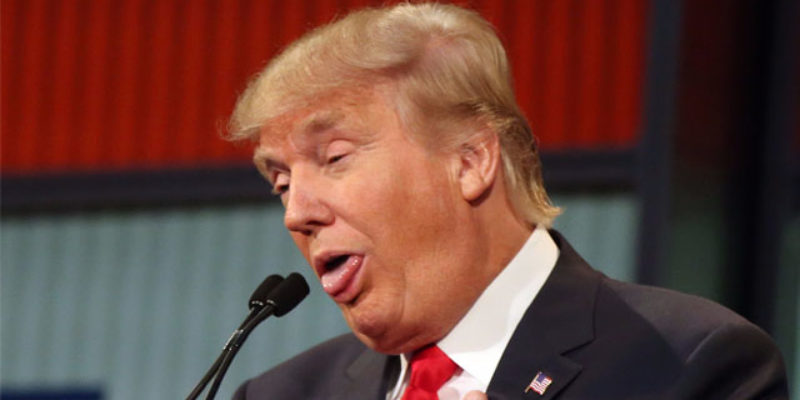Louisiana Republicans have had a stormy history with selecting delegates to the national convention.
In 1952, an actual fist fight broke out between Robert Taft forces and those aligned with General Dwight Eisenhower when the phone-booth-sized state GOP tried to pick delegates at a Tulane neighborhood bar.
The matter ended up playing out on the floor of the convention with the Bayou State Eisenhower faction prevailing, which allowed Ike to overcome Taft.
Had he been there, Donald Trump might have said Ike “stole” the nomination from the son of the 27th president.
The Pelican State has had controversial delegate selections since 1952 however this was not the case in 2016, which was the most equitable and transparent process used in my two decades of involvement in the Louisiana Republican Party.
In fact Louisiana’s delegate allocation process was far more just than South Carolina’s, which had a system designed to be a de facto winner take all primary despite the RNC rules mandating proportional awarding of delegates.
And as Trump was the sole beneficiary of the Palmetto State’s rules that violated the spirit of the national GOP’s guidelines, you did not hear a peep, or rather in The Donald’s case a “tweet,” of complaint.
The rules and procedures used by the Louisiana GOP this year were a reaction to what almost transpired in 2012, when supporters for Texas congressman Ron Paul, who received 6% in the presidential primary, attempted to hijack delegates that were reserved for Rick Santorum and Mitt Romney, who had received 49% and 27% respectively.
Controls were put in place by the Louisiana Republican Party to ensure that the people who would go to Cleveland for the Republican National Convention were indeed true supporters of the candidates they were bound to.
For example, Republican presidential candidates were asked to submit lists of over 40 men and women they would like considered for the delegate slots that they were allocated. From these candidate-sanctioned lists, the state Republican convention chose the individuals who would represent them at the convention. The convention included supporters from all three candidates receiving delegates- including the Trump state chairman.
Furthermore, Trump was the only candidate who had campaign staffers present at the convention.
If Trump has a problem with the delegates picked, then he should have done a better job compiling his list of potential RNC delegates and alternates.
The interests of the candidates were protected and more importantly the integrity of a presidential primary election that drew over 300,000 Republicans to the polls, smashing the 2012 Louisiana GOP primary record by over 100,000 people.
Under the rules adopted by the Louisiana Republican Party, delegates to the Republican National Convention would be awarded via the Louisiana presidential primary results in each of the state’s six congressional districts, where three delegates per district were at stake, and proportionally based off of the statewide vote, with a presidential candidate required to garner at least 20% for a share of the at-large delegates.
Only two candidates met the statewide threshold for at-large delegates: Trump with 41% and Cruz with 38%. Florida US Senator Marco Rubio ran third in the state with 11%.
Though shut out of a share of the at-large delegates, Rubio would qualify for a delegate in five of Louisiana’s six congressional districts while Trump received one in each of the districts. Cruz received one delegate in five of six congressional districts and a second delegate in the 4th District as he had run up the score there.
The final Louisiana breakdown of committed delegates to the candidates were 18 for Trump (12 at-large and 6 from the congressional districts), 18 for Cruz (11 at-large and 7 from the congressional districts), 5 for Rubio (one delegate from each congressional district but the 4th), and 5 uncommitted delegates. Those five include the state’s three representatives to the RNC (state chairman, national committeeman, and national committeewoman) plus a former party executive director and the current party executive director.
Where Trump runs into a problem in Louisiana is not the five uncommitted delegates, whose support alone would not give Cruz a majority, but with the Rubio delegates, whose support along with the RNC member delegates would give the Texan enough to qualify Louisiana as one of those all-important eight nomination states under the Romney-Ginsberg rules.
Perhaps the billionaire called the junior senator from Florida “Little Marco” one-thousand too many times?
Trump is coming up short in Louisiana and in other places because of his over-the-top belligerence towards his rivals and the chaotic nature of his candidacy.
The Trump campaign is not a political operation in the conventional sense; it is an advance team that manages crowd control at mega rallies, produces slapdash television ads that comprise of adulation/testimonials by from raving fans filmed in the corridors of said events, insult-to-insult coverage of his bloviations by the media, the undeclared 527 organization that is Breitbart, jet fuel, and a twitter account on steroids.
The relatively paltry sum of money he has thus far spent on a national bid reflects his different kind of candidacy. But as is the case with many of his policy positions from the late GOP debates, Trump tends to forever be short on details when it comes to actually securing delegates.
That lack of attention to detail particularly when it comes to delegate selection could be the difference between him winning and losing the Republican presidential nomination. And if he fails, that won’t be because of a grandiose anti-Trump conspiracy but a general carelessness that has been a trademark of his candidacy.
Advertisement
Advertisement

